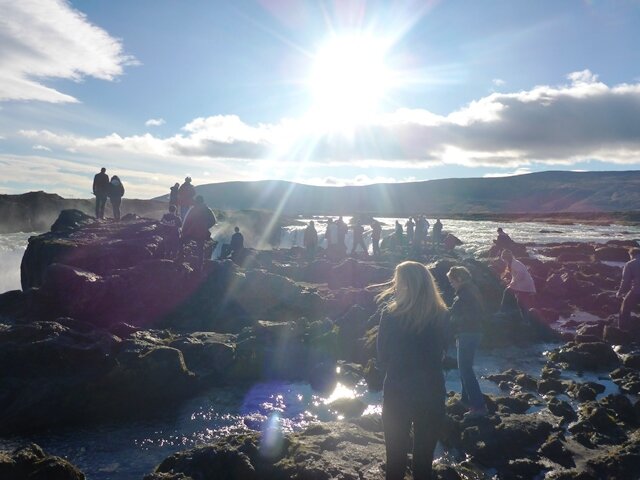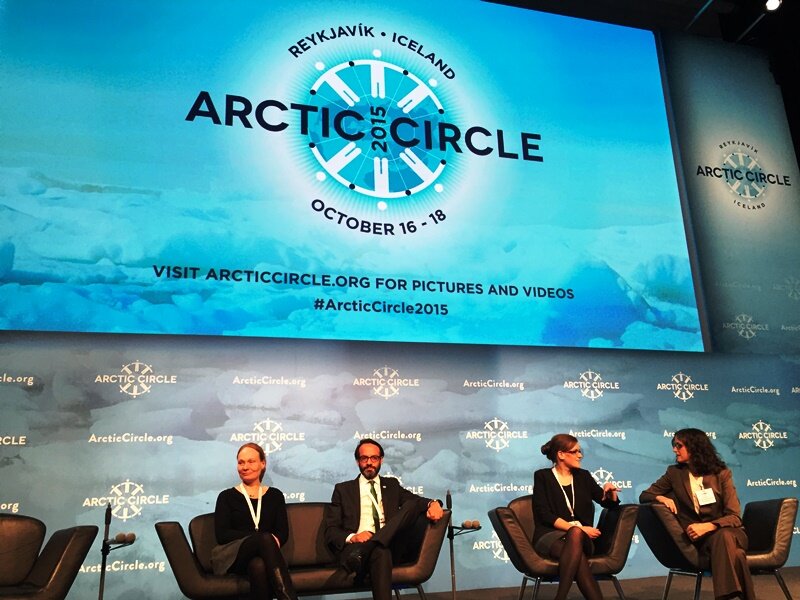PAGE21 in Le Monde
- Details
- Created on Monday, 20 February 2012 13:04
 The prestigious French newspaper "Le Monde" published an article on the PAGE21 project in its Friday issue, 17 February 2012.
The prestigious French newspaper "Le Monde" published an article on the PAGE21 project in its Friday issue, 17 February 2012. The article outlines the objectives of the project and emphasizes the still unknow impact of the vast amount of CO2 and CH4 stored in the Arctic permafrost which so far have been ignored in international climate modeling.
To read the article (in French), please click HERE
Kickoff meeting
- Details
- Created on Tuesday, 08 November 2011 10:34
The official launch of the PAGE21 project was November 1, 2011 and following the launch the project kick-off meeting convenes in Potsdam, Germany November 7-9. The Meeting agenda can be found by following THIS LINK

Press Release November 2011
- Details
- Created on Monday, 07 November 2011 11:48
 EU project launch: PAGE21 closes gap in our understanding of the climate system
EU project launch: PAGE21 closes gap in our understanding of the climate system
PDF version
Potsdam/Bremerhaven, 7 November 2011. Today researchers from eleven countries will meet in Potsdam to launch a new, four-year EU project. What happens when the vast amounts of carbon in Arctic soils are released to the atmosphere? This is the central question fieldresearchers, operators of long term observatories and modellers from 18 partner institutions in the EU intend to answer with the PAGE21 project. It is the first permafrost research project funded by the European Union. By pooling expertise from various subjects, the scientists aim to deliver a valuable foundation for the United Nations 5th World Climate Report.
"I'm looking forward to close co-operation between the leading scientists in European permafrost research," said Prof. Dr. Hans-Wolfgang Hubberten of the Research Unit Potsdam of the Alfred Wegener Institute for Polar and Marine Research in the Helmholtz Association. The mineralogist leads the PAGE 21 project, which has been allotted almost 10 million Euros, of which just under 7 million Euros are provided by the 7th Framework Programme of the European Union. The acronym stands for "Changing permafrost in the Arctic and its Global Effects in the 21st Century".
"We need to improve our basic understanding of the physical and biogeochemical processes in permafrost so as to be able to provide more reliable predictions of future global climate change," elaborated Hubberten. About 50 percent of the underground organic carbon occurring worldwide is found in northern permafrost regions. This is more than double the amount of carbon currently in the atmosphere in the form of the greenhouse gases carbon dioxide and methane. Added to this, the effects of climate change are most severe and rapid in the Arctic. Permafrost is already thawing and releasing greenhouse gases, which exacerbates these effects.
Many of the mechanisms for release are in themselves fundamentally understood. However, when it comes to the quantification of single processes, the available data is sparse. This means that field scientists are called upon, for example, to deploy flux chambers on the permafrost in Siberia, to measure escaping gases when the ground thaws in the summer. In order to capture the changes in gas release over time and space, these measurements must be done repeatedly and cover larger areas as well as longer periods during the year. By standardizing measurement methods between partners, the scientists can directly compare their data. In doing this, the project partners of PAGE21 are expecting to obtain high-quality data records.
These records from the permafrost are a prerequisite basis for the improvement of global climate models. "Today's global models are frequently inaccurate because the permafrost regions, with all their feedback mechanisms, are under-represented." says Hubberten. An urgent goal of PAGE21 is to undertake steps to improve the models, which provide the basis for future mitigation and adaptation strategies confronting society in the 21st century.
Background Information:
Project Title: Changing permafrost in the Arctic and Its Global Effects in the 21st Century
Tool: Large-scale integrating project, FP7Total cost: € 9,269,927 EC share: € 6,951,895
Duration: 48 months Start: 1 November 2011
Project Coordinator: Prof. Hans-Wolfgang Hubberten, Alfred Wegener Institute for Polar and Marine Research
Partners:
Alfred Wegener Institute for Polar and Marine Research (Germany)
The University Centre in Svalbard (Norway), Stockholms Universitet (Sweden)
Vrije Universiteit Amsterdam (Netherlands)
Technical University of Vienna (Austria)
Universite Joseph Fourier, Grenoble (France)
University of Exeter (UK), Max-Planck-Gesellschaft (Germany)
Lund University (Sweden)
University of Copenhagen (Denmark)
University of Hamburg (Germany)
Commissariat ê l'Energie Atomique et aux Energies alternative ( France)
Met Office, for and on behalf of the Secretary of State for the Defence of the United Kingdom, Great Britain and Northern Ireland (UK)
Finnish Meteorological Institute (Finland)
University of Eastern Finland (Finland)
Institute for Biological Problems of Cryolithozone (Russia)
Arctic Portal (Iceland)
Moscow State University (Russia).
Notes for Editors:
Printable images can be found at: www.awi.de/en/news/press_releases/
Your contact person at the Research Unit Potsdam of the Alfred Wegener Institute are
- Prof. Dr. Hans-Wolfgang Hubberten (Tel: +49 331 288-2100/2136, E-mail: Hans-Wolfgang.Hubberten@ awi.de)
- Dr. Julia Boike (Tel: +49 331 288-2119, E-mail: @ Julia.Boike awi.de)
- Dr. Hugues Lantuit (+49 331 288-2216, E-mail: Hugues.Lantuit @ awi.de).
- Folke Mehrtens (phone: +49 471 4831-2007, E-mail: @ Folke.Mehrtens awi.de)
The Alfred Wegener Institute conducts research in the Arctic, Antarctic and oceans of the high and middle latitudes. It coordinates polar research in Germany and provides major infrastructure to the international scientific community, such as the research icebreaker Polarstern and stations in the Arctic and Antarctica. The Alfred Wegener Institute is one of the seventeen research centres of the Helmholtz Association, the largest scientific organisation in Germany.




